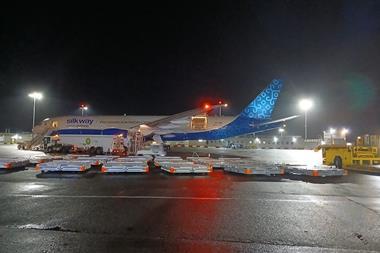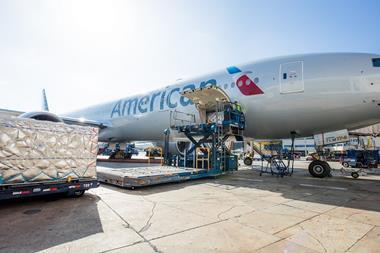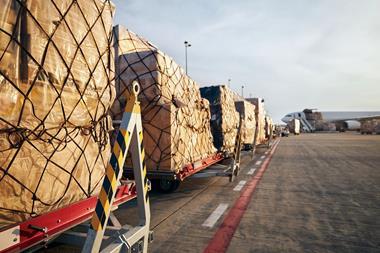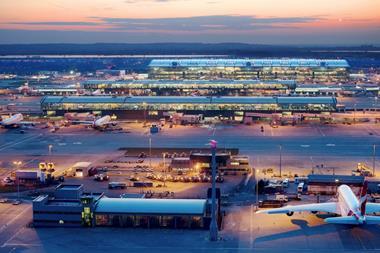
IATA, Airports Council International (ACI) World and the Worldwide Airport Coordinators Group (WWACG) have announced the agreement of a new governance structure for the Worldwide Slot Guidelines (WSG) that are published by IATA.
A statement said that “Airport operators, airlines, and slot coordinators will now play an equal role in determining the global guidelines for the allocation of airport slots”.
Airport slots are specific points in time allotted for an aircraft to land or take off at an airport. Where the demand for slots at a particular airport exceeds the available supply, the airport can be considered ‘capacity-constrained’, at which time a slot allocation process is implemented.
More than 200 airports require slot coordination because they have insufficient capacity to meet demand at all times of the day. Coordination based on global standards helps to maximise utilisation of existing capacity and avoid delays.
Slot constraints frequently hit all-cargo operations particularly hard, freighter services having to make way for passenger services at congested gateways.
The new industry-wide governance guidelines was signed off earlier this week (June 3) in Seoul, South Korea by IATA director general and chief executive Alexandre de Juniac, ACI World director general Angela Gittens and WWACG chairman Eric Herbane.
All parties agreed that new governance and increased collaboration provides an opportunity to further modernise slot allocation mechanisms to the benefit of the aviation community.
De Juniac said that the new guidelines would make slot allocation even more responsive to the changing needs of the market.
“For more than 40 years, the [WSG] has managed scarce airport capacity fairly, transparently and independently,” de Juniac observed.
“This has enabled airlines to make network investments with certainty. But more importantly it has benefitted consumers by ensuring schedule reliability while enhancing competition by providing opportunities for new entrants in even the most congested airports.
“By working together with ACI and WWACG the time-tested WSG will become even more responsive to evolving market needs,” he continued.
“But it is vital that policy-makers remember insufficient capacity to meet demand forfeits economic opportunities. The new WSG governance will make the best use of what we have – but it is no substitute for investing in modern airports and air traffic management.”
Gittens pointed out: “This new agreement on airport slots will have a transformative effect on a crucial component of the air transport industry and is a result of close collaboration between ACI and its global partners, IATA and the WWACG.”
“ACI and IATA forecasts show that global traffic will double by the 2030s. This highlights the need for airports and airlines to make best use of existing infrastructure as well as plan for new infrastructure.
“This fully reformed governance sets the ideal ground to regularly review the slot allocation process with the appropriate level of ambition and in line with an increasingly competitive and highly connected global network.”
Herbane added: “It is of the utmost importance that [the] scarce airport capacity available is allocated in a fair, transparent and non-discriminatory way by airport coordinators or schedules facilitators acting independently from any interested party.
“We trust that in the future, should regulators around the world ever still feel necessary to act in slot allocation, they will understand the global nature of this industry by taking their inspiration in the WSG for the backbone of their regulation, relying on such broad and various experiences brought together with this new WSG governance.”
The issue of fairly allocating airport slots has long been a thorny one, and all sorts of aviation industry stakeholders have wanted to have their say on the matter.
For example, in March the Global Shippers’ Alliance (GSA) said that it would put pressure on IATA to end its “detrimental to freighters” airport slots policy, one of a series of initiatives to speed up the airfreight supply chain, address growing e-commerce volumes and promote a “positive image” for air cargo.










